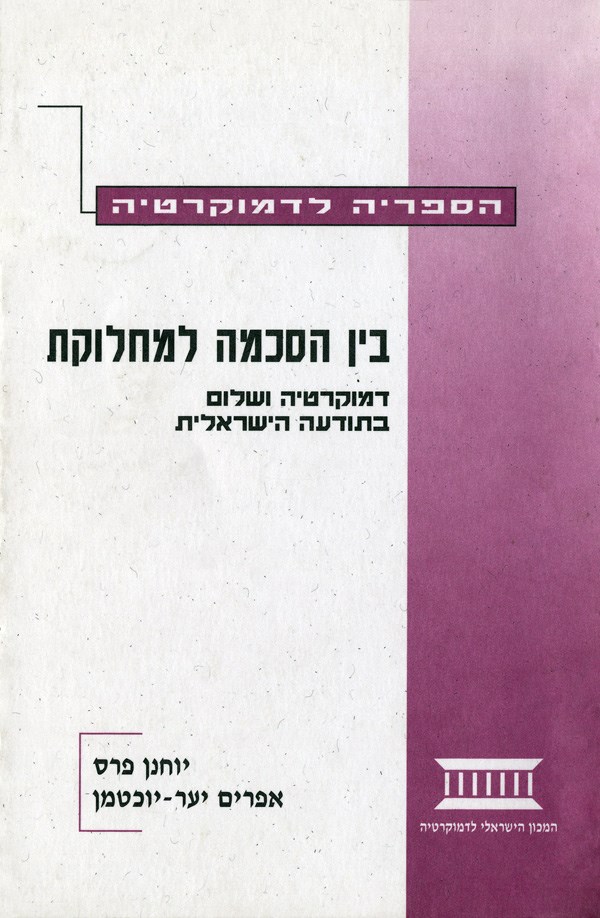Between Consent and Dissent
Democracy and Peace in the Israeli Mind
- Written By: Yochanan Peres, Ephraim Yuchtman-Yaar
- Publication Date:
- Cover Type: Softcover | Hebrew
- Number Of Pages: 260 Pages
- Price: 75 NIS
Based on a series of surveys conducted by IDI's Guttman Center from 1991 to 1995, this book explores agreement and conflict and the complex relations between them. It is a fascinating discussion of Israeli democracy, which is threatened by external tensions and pressures and is imperiled by internal schisms that also make it more vital.
In contrast to the forces which threaten Israeli democracy, there exist opposing pressures that support it: First, the democratic tradition that characterized the Zionist movement from its inception; second, Israel's multi-channeled connections with the United States; third, the reciprocal relationship with Western Jewry, that hold minority rights so dear.
The majority of Israeli Jews supports the fundamentals of democracy and is committed to them in principle. Although, when democratic values are in competition with other values (the integrity of the land, the Jewish character of the state) that democratic majority decreases in dimension, yet perseveres. A series of surveys conducted in the years 1991, 1992, 1994, and 1995 serve as the foundation for the research in this book. The chapters describe and analyze these surveys' findings, in light of the following questions: Is democracy perceived as an end or a means? What is the relationship between democracy and demography? Is the Israeli public interested in denying democratic rights to unpopular groups? What is the current meaning of terms such as "right" and "left", as well as capitalism and socialism in Israel? Is there an inevitable contradiction between religiosity and democracy? And finally, was Israeli democracy in Israel suspended during the Gulf War? These are the questions this volume attempts to answer.
An English translation of this book is available on Amazon.com
Professor Yochanan Peres is a researcher and teacher of sociology and social work at Tel Aviv University. His interests include public opinion surveys and sociology of the family.
Professor Ephraim Yuchtman–Yaar is a researcher and teacher of sociology at Tel- Aviv University and Director of The Tami Steinmetz Center for Peace Research (TSC). His interests include organizational theory, employment theory and political sociology.

